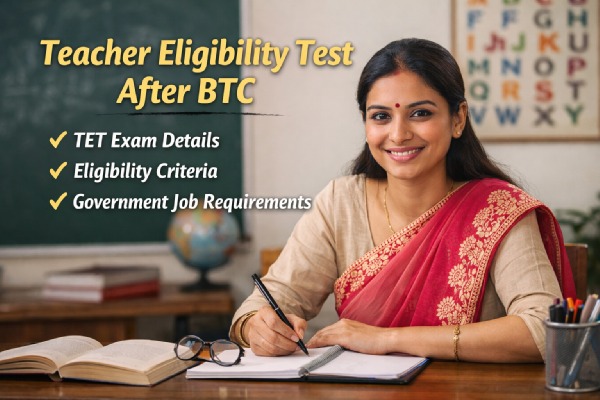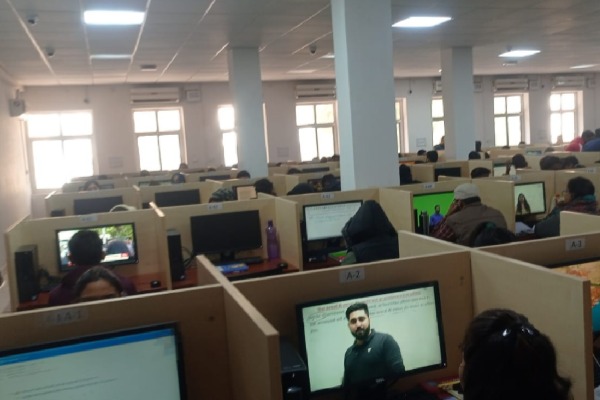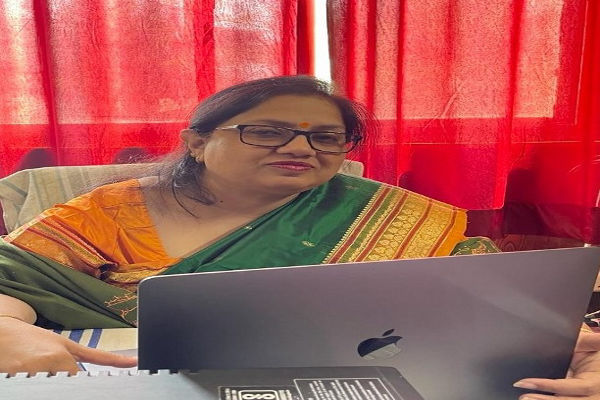
Government Teaching Job Opportunities After B.Ed
If you’re considering a successful teaching career, then a Bachelor's in Education (B.Ed) degree is an essential stepping stone that equips you with the skills, knowledge, and credentials needed to inspire and educate future generations. B.Ed is more than just a basic degree, it is a professional qualification that equips individuals with the pedagogical knowledge, teaching methodologies, and classroom management skills necessary to become successful educators. Are you planning to pursue B.Ed and take the first step towards your teaching career? In this comprehensive guide, you‘ll discover everything related to a B.Ed course, its eligibility, salary packages offered, and more. Let’s get started!
Table of Contents
- Why Pursue B.Ed? The Gateway to Government Teaching Jobs
- Top Government Teaching Jobs After B.Ed
- Eligibility Criteria and Qualifications Required for Government Teaching Posts
- Popular Entrance Exams for Government Teaching Jobs
- Salary Structure Based on Pay Commission (6th & 7th CPC)
- How Our B.Ed Program Prepares You for Government Jobs
- Take the First Step Towards a Secure Teaching Career with M.C. Saxena Group of Colleges
- Frequently Asked Questions
Why Pursue B.Ed? The Gateway to Government Teaching Jobs
B.Ed is a great course for individuals seeking a rewarding career in teaching and education. It provides essential training in pedagogy, classroom management, and subject knowledge, preparing graduates to become effective educators. Additionally, B.Ed is often a mandatory qualification for government teaching jobs, making it a valuable credential for those aspiring to work in the public education sector. Here’s what students pursuing B.Ed gets rewarded with:
- Attractive Pay Benefits
- Subject Expertise
- Improved Communication
- Competitive Edge
- Job Stability and Security
- Power to Transform Lives
- Professional Growth
- Practical Training
- Pension Benefits
- Respect and Admiration
Top Government Teaching Jobs After B.Ed
B.Ed opens doors to a wide range of Government teaching exams, such as CTET, TET, KVS, and DSSSB, all of which require candidates to complete this program from a reputed institution successfully.
The teaching jobs after B.Ed are as follows:
- Primary School Teacher (Classes I-V): Requires B.Ed and qualification in CTET/TET.
- Trained Graduate Teacher (TGT) (Classes VI-X): For candidates with graduation + B.Ed + TET qualification.
- Post Graduate Teacher (PGT) (Classes XI-XII): Requires post-graduation + B.Ed.
- Kendriya Vidyalaya Sangathan (KVS) Teacher: A central government teaching job with excellent pay and perks.
- Navodaya Vidyalaya Samiti (NVS) Teacher: Another premier central government job offering teaching roles across India.
- Delhi Subordinate Services Selection Board (DSSSB) Teacher: Offers teaching positions in Delhi government schools.
- State Government School Teacher: Recruitment is conducted through state-level TETs and public service commissions.
- Special Educator Roles: For candidates who pursue B.Ed with a specialisation in special education.
PLEASE NOTE:
While completing your degree with good passing marks is important, gaining practical classroom experience through internships or volunteer teaching can give you a competitive edge when applying for B.Ed. Government jobs. Schools and educational institutions often seek candidates who combine academic qualifications with real-world teaching experience.
Eligibility Criteria and Qualifications Required for Government Teaching Posts
All government jobs in India, whether at the primary, secondary, or higher secondary level, require specific eligibility and qualifications to ensure high-quality education standards. Below is a comprehensive breakdown of the B.Ed eligibility for PGT/TGT:
|
Teaching Level |
Minimum Education |
Professional Qualification |
Mandatory Exam |
Other Requirements |
|
Primary (Class 1-5) |
12th or equivalent |
D.El.Ed / B.El.Ed |
CTET Paper 1 / State TET |
Regional language proficiency |
|
Upper Primary (Class 6-8) |
Graduation |
B.Ed or equivalent |
CTET Paper 2 / State TET |
Subject specialisation preferred |
|
Secondary (Class 9-10) |
Graduation in a relevant subject |
B.Ed |
CTET Paper 2 / State TET |
Teaching subject knowledge |
|
Senior Secondary (Class 11-12) |
Master’s degree in the subject |
B.Ed or equivalent |
CTET / State TET |
Specialised subject knowledge |
Popular Entrance Exams for Government Teaching Jobs
Here’s a list of popular entrance exams for government teaching jobs in India:
- CTET (Central Teacher Eligibility Test): Conducted by CBSE for teaching positions in central government schools like Kendriya Vidyalayas and Navodaya Vidyalayas.
- TET (Teacher Eligibility Test): State-level exams conducted by individual states for recruitment in state government schools (e.g., UPTET for Uttar Pradesh, HTET for Haryana).
- REET (Rajasthan Eligibility Examination for Teachers): Specifically for recruiting teachers in Rajasthan state schools.
- MP TET (Madhya Pradesh Teacher Eligibility Test): For teaching posts in Madhya Pradesh government schools.
- KTET (Kerala Teacher Eligibility Test): For teaching positions in Kerala state schools.
- CTET Paper 1 and Paper 2: Paper 1 for primary level teachers (Class 1–5) and Paper 2 for upper primary level teachers (Class 6–8).
- UGTET and PGT TET: Some states have separate tests for Upper Grade Teachers (UGT) and Post Graduate Teachers (PGT).
- D.El.Ed Entrance Exams – For admission into Diploma in Elementary Education courses, which are often required for primary teaching posts.
Salary Structure Based on Pay Commission (6th & 7th CPC)
The salary structure for government teaching jobs in India is largely determined by the recommendations of the Pay Commission. The 6th and 7th Central Pay Commissions (CPC) provide frameworks that define pay scales, allowances, and grade pays for various teaching positions.
|
Teaching Level |
6th CPC Pay Scale (INR) |
7th CPC Pay Level & Basic Pay (INR) |
Typical Starting Salary Range (INR) |
|
Primary Teacher |
Pay Band 1: ₹5200-20200 + Grade Pay ₹1800 |
Level 1 (₹18,000 - ₹56,900) |
₹25,000 – ₹35,000 |
|
Upper Primary Teacher |
Pay Band 2: ₹9300-34800 + Grade Pay ₹4200 |
Level 5 (₹29,200 - ₹92,300) |
₹35,000 – ₹45,000 |
|
Secondary Teacher |
Pay Band 2: ₹9300-34800 + Grade Pay ₹4600 |
Level 6 (₹35,400 - ₹1,12,400) |
₹40,000 – ₹50,000 |
|
Senior Secondary Teacher |
Pay Band 3: ₹15600-39100 + Grade Pay ₹5400 |
Level 8 (₹47,600 - ₹1,51,100) |
₹50,000 – ₹60,000 |
Take the First Step Towards a Secure Teaching Career with Dr. M.C. Saxena Group of Colleges
Begin your journey toward a stable and rewarding teaching career with Dr. M. C. Saxena Group of Colleges, where your passion meets purpose. Our B.Ed program is more than just a qualification; it’s a gateway to impactful learning, professional recognition, and long-term job stability. With expert faculty, practical training, and a curriculum aligned with government standards, we prepare you to lead classrooms with confidence.
- Email: atmcscet@rediffmail.com
- Call Now to Take Admission: +91 9936052233
Frequently Asked Questions
Q1. How the B.Ed Program Prepares You for Government Jobs?
Ans. A B.Ed program equips you with the necessary skills, pedagogy, and practical training to confidently pursue a Govt job after B.Ed. It also prepares you for exams like CTET and TET, increasing your chances of selection in government schools.
Q2. Which course is best for teaching after B.Ed?
Ans. The M.Ed. (Master of Education) is the ideal course to follow after completing a B.Ed. for advancing your teaching career and becoming eligible for higher academic roles.
Q3. What are the prospects of becoming a lecturer after completing B.Ed?
Ans. To become a lecturer, you typically need a Master's degree and must pass exams like the UGC NET; a B.Ed degree alone is not sufficient.
Q4. Does B.Ed prepare you for modern, tech-enabled classrooms?
Ans: Yes, B.Ed programs now include training in digital tools and innovative teaching methods to help you adapt to modern classrooms





































































